Teaching Your Horse to Overcome Fears
Laura Harrison McBride
Introduction: The Nature of Horses
Riders never speak of being thrown; non-riders often do.That horse threw her and broke her arm,or I wont learn to ride because I dont want to be thrown, youll hear non-riders say. In fact, what they are afraid of is a horses normal reaction to fear, commonly known as a spook.
Generally speaking, horses dont throw people, that is, unseat them with malice aforethought. Certainly, horses can and do hurt humans, but that is simply the result of the horse acting like a horse especially if he has been poorly trained, has been abused, or is in pain or distress. After all, he cant ask us in plain English to stop treating him badly or to take him to the doctor because his shoulder hurts.

When you think of mankinds relationship with horses, its little short of miraculous: A 1,000-pound animal that can run like the wind, leap like a tiger, and kick like a ton of dynamite lets us get up on his back where predators perch and make him go where we want, when we want, and how we want. No wonder the term kindis often applied to horses.
Leader of the Pack
Generations of horse trainers have advised becoming the leader of the herd, the alpha animal, as a way to control and train horses. Many of todays natural horsemanship trainers reject that idea. For example, Monty Robertss Join-Up program places humans in the role of protector rather than leader. If a horse looks at us as protectors, rather than as creatures who will engage in contests with him or urge him to contest with others, we are likely to get the cooperation we want without resentment, force, or pain on either side.
Much of that kind behavior is due to training and early conditioning. A horse handled early and often by gentle, knowledgeable humans is likely to be happy around people. If the handlers have set boundaries of their own and respected the horses boundaries, little trouble biting, butting, and so on is likely.
Once mounted, humans can use a horses natural capabilities running (for racing), jumping (for show jumping and hunting), and dancing and playing (for dressage). We can even use their ability to charge at predators, such as when were working cattle. And we can use their strong backs and strong legs to pull our equipment and pack our belongings. When the horse is performing these tasks, he is acting as he always does, that is, in what he perceives as his best interest. If he lets you jump him, he gets rewarded. If he refuses to jump when asked, he may reap a crack of the crop.
When he is unsure of himself or frightened, however, a horse may disobey. Again, as he perceives it, it is in his best interest not to do what you ask under the circumstances. His disobedience is merely a request for more instruction or more information. He is giving you a message that he is uncertain about what you are asking him to do or about something in the environment around him. To the horse, the result of not doing what you ask encountering the unknown situation is better than encountering it, even if the result is likely to be a reprimand.

When a horse is truly frightened as opposed to merely uncertain he is more likely to shy or spook than to simply disobey. And that, too, is in the horses own perceived best interest.
When You Cant Fight, You Fly
Humans, with their intellect and their tools, have both fight and flight responses at their disposal. So do dogs and cats: They have teeth and claws to fight with, and speed to get them away from danger.
Horses have only flight. Granted, both hooves and teeth can do a lot of damage to humans who cant get out of the way as quickly as most animals can. But neither a horses teeth nor his hooves are much of a defense against the fangs and claws of a cougar or a man with a spear or a gun. So flight is the reaction of choice or, more probably, the reaction that natural selection imposed, allowing equines to survive.
Its in the Eyes
Never underestimate the role vision plays in a horses behavior. A horse can see about 340 degrees around his head a great advantage to a prey animal who spends most of his time with his head down, grazing. The downside is that each eye sees things separately, which explains why your horse might, say, walk calmly past a parked car when going in one direction but panic when its time to go the other way. Until the horse processes the visual cues, the second view is of an entirely different and potentially dangerous object.
That being the case, spooky horses are much more common than many people think. Indeed, a spooking response is so natural to horses that it is probably impossible to ever completely train it out of them. There might come a time, for any horse, when something so frightens him that he shuts off his contact with his rider and reverts to what he would do in the wild: Stop, twirl, and run like the dickens.
Fortunately, you can almost certainly tone down the spook reaction to a level thats acceptable to the rider. You can get virtually any horse to the point at which, though he may unnerve you, he wont unseat you. Some trainers believe that you can go even further, to virtual perfection, with the right horse and the right techniques.
By Any Other Name

Many horse-training books, afraid of implying that horses can be dangerous, dont even use the term spooking. Instead, they talk about shying.It sounds much less scary, and, in fact, it is, because its different:
A shy is simply a sudden dodge, a hiccup in the forward gait. Its no biggie, and sometimes, its even amusing.
A spook,on the other hand, is often a violent movement. Being unseated or seriously injured is always a possibility. Spooking can include any or all of the following:
 Twisting or twirling, with a leap into a canter
Twisting or twirling, with a leap into a canter
 Bucking springing into the air with an arched back, landing with stiff forelegs and lowered head
Bucking springing into the air with an arched back, landing with stiff forelegs and lowered head
 Bolting a flat-out gallop with the horse paying no attention to the rider
Bolting a flat-out gallop with the horse paying no attention to the rider

Punishment versus Reprogramming
A horse that blows upor spooks regularly generally is so anxious and hyperalert that his behavior is unpredictable and could include bolting, rearing, bucking, refusals you name it. When a horse begins work in that condition, most riders are well aware of it and take corrective steps, whether that means getting off and longeing the horse until he calms down or changing the plans for the day.
Unfortunately, some riders believe that riders should punish a horse that spooks into submission. However, punishing a horse for doing what comes naturally and, to the horse, seems eminently sensible, will do no more than convince him that there really is something to worry about when anything unfamiliar enters his world. Hell have a double dose of spook: the situation or object itself, and you. Of course hell start feeling a bit panicky.


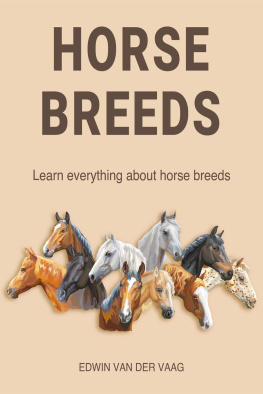
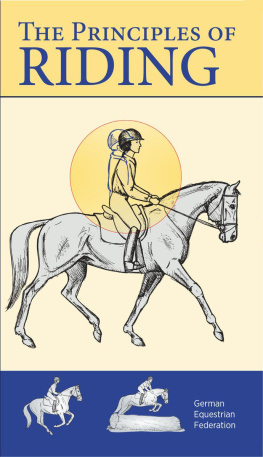

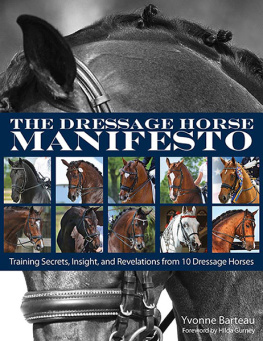
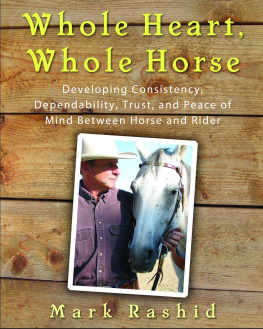
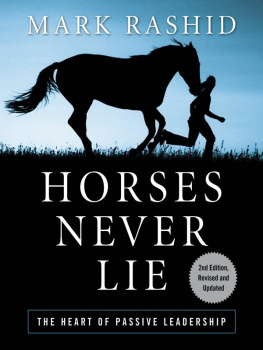
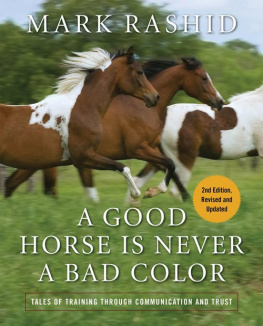

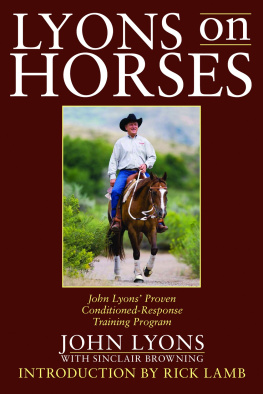



 Twisting or twirling, with a leap into a canter
Twisting or twirling, with a leap into a canter